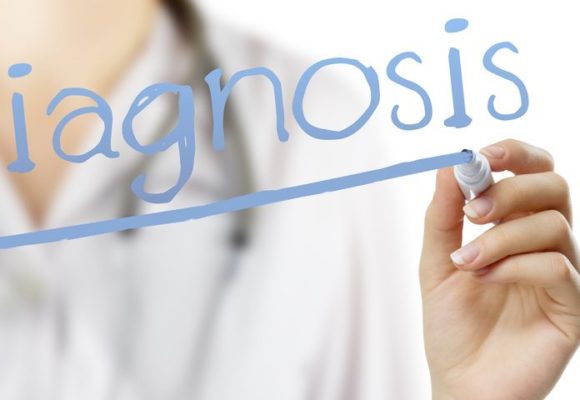A newly developed technique could make it easier to measure very small concentrations of molecules, which may have implications in early diagnostic testing for Alzheimer’s and other diseases. The technique was described in Research, in the study “Single-Atom Nanozymes Linked Immunosorbent Assay for Sensitive Detection of Aβ 1-40: A Biomarker of Alzheimer’s Disease.” One of the…
About Alzheimer’s Disease
Walking into a room and forgetting why you went into the room is normal. Walking into a room and forgetting what room you are in is not normal. Alzheimer’s disease is the most common form of dementia and affects one in ten people over the age of 65. Unfortunately, the exact cause of Alzheimer’s disease is not fully understood however leading scientific experts in the field attribute the illness to the irreversible and progressive generalized degeneration of the brain. Alzheimer’s disease goes well beyond the forgetfulness that may accompany aging, and typically first signs include difficulty remembering current information or performing new tasks. Ongoing hallmark symptoms include impaired memory function, difficulty performing everyday tasks, and neurobehavioral abnormalities. Currently, there is no known cure for Alzheimer’s disease, and multi-disciplinary treatment focuses on symptom management and limiting progression.
Conditions
Alzheimer’s News
Axsome Launches AXS-05 Phase 3 Trial for Alzheimer’s-associated Agitation
Axsome Therapeutics has launched a Phase 3 trial that will assess the safety and efficacy of AXS-05, the company’s investigational oral treatment for agitation associated with Alzheimer’s disease. If positive, data from the trial is expected to support Axsome’s submission of an application requesting the therapy’s approval for treating Alzheimer’s patients with agitation. According to…
Donanemab Found to Slow Cognitive, Functional Decline in Early Alzheimer’s
Donanemab (LY3002813), Eli Lilly’s experimental antibody-based immunotherapy, slowed cognitive and functional decline in patients at the earlier stages of Alzheimer’s disease, according to data from a Phase 2 trial. Findings from this trial, called TRAILBLAZER-ALZ (NCT03367403), also showed donanemab had a favorable safety profile, which was consistent with observations from previous clinical trials. “We are…
BXCL501 Led to Fast, Safe, Durable Drop in Agitation in Dementia Patients
BXCL501, BioXcel Therapeutics’ experimental therapy for the treatment of agitation associated with dementia, was found to be well-tolerated and able to rapidly and sustainably lower agitation in patients with different forms of dementia, including Alzheimer’s disease. These top-line findings from TRANQUILITY, BioXcel‘s Phase 1b/2 clinical trial (NCT04251910), are expected to support the therapy’s continued development…
Support for Research, Patient Care in US 2021 Budget Wins Praise
The Alzheimer’s Association and its advocacy affiliate, the Alzheimer’s Impact Movement (AIM), are lauding recent actions by lawmakers that will fund and advance multiple Alzheimer’s disease policies. The advancements are part of the $1.4 trillion government funding bill for the 2021 fiscal year that was passed by Congress on Dec. 21 and later signed into law by President Trump. The appropriations…
Phase 3 Trial of Diabetes Treatment in Early Alzheimer’s Patients Planned
Novo Nordisk is planning to initiate by midyear a pivotal Phase 3a trial of oral semaglutide, a diabetes treatment, in people with early Alzheimer’s disease. “As a company we aspire to address high unmet medical needs within serious chronic diseases, and we are therefore pleased to initiate phase 3 development of semaglutide within Alzheimer’s disease,” Mads…
Fujirebio Seeks FDA’s Premarket Approval for Diagnostic Test
Fujirebio Diagnostics has submitted a premarket notification — also known as a 510(k) — to the U.S. Food and Drug Administration (FDA) for its Alzheimer’s diagnostic test, called Lumipulse G β-Amyloid Ratio (1-42/1-40). If cleared by the FDA, it will be among the first commercially available lab tests to assess the risk of Alzheimer’s disease in…
Biogen, Eisai Request Approval of Aducanumab for Alzheimer’s in Japan
Biogen and Eisai are seeking approval of aducanumab (BIIB037) for the treatment of Alzheimer’s disease in Japan, the companies have announced. If approved, aducanumab will become the first therapy with the potential to slow the clinical decline seen in patients with Alzheimer’s. “The filing of the application is an important step in serving patients and their…
Dosing Starts in Athira’s Phase 2 ACT-AD Trial Testing ATH-1017; Enrollment Ongoing
Athira Pharma has begun dosing patients in its Phase 2 clinical trial evaluating ATH-1017, an investigational small molecule for the treatment of mild to moderate Alzheimer’s disease. Clinical efficacy will be demonstrated by improvements in cognition and functional assessments among participants, compared with a placebo. “The initiation of our second late-stage study for ATH-1017 represents…
Cortexyme’s COR388 GAIN Trial Advances to Endpoint; Results Expected Late 2021
Cortexyme’s ongoing Phase 2/3 GAIN clinical trial, which is evaluating the investigational treatment COR388 (atuzaginstat) in people with mild to moderate Alzheimer’s disease, has been approved to continue as planned to its one-year endpoint, the company said. Topline results from the study, testing whether COR388 can lessen dementia and neurodegeneration in Alzheimer’s, are expected on time…
Last Patient Finishes ALZT-OP1 Combo Therapy Trial; Results Expected Early 2021
The last participant has completed all predefined assessments in the Phase 3 COGNITE clinical trial, which is assessing the safety and effectiveness of AZTherapies’ treatment candidate ALZT-OP1 for people with early Alzheimer’s disease. The trial’s top-line results are expected in the first months of 2021. The biopharmaceutical company hopes its investigational therapy will be found…
Social Inequalities Found in US Counties With Highest Alzheimer’s Rates Among Blacks, Latinos
A recent report found deep social inequalities in U.S. counties with the highest Alzheimer’s rates among Blacks and Latinos. Inequalities related to education, income, food insecurity, and the physical environment are collectively known as social determinants of health and are inextricably tied to location, according to the report from UsAgainstAlzheimer’s Center for Brain Health Equity…













